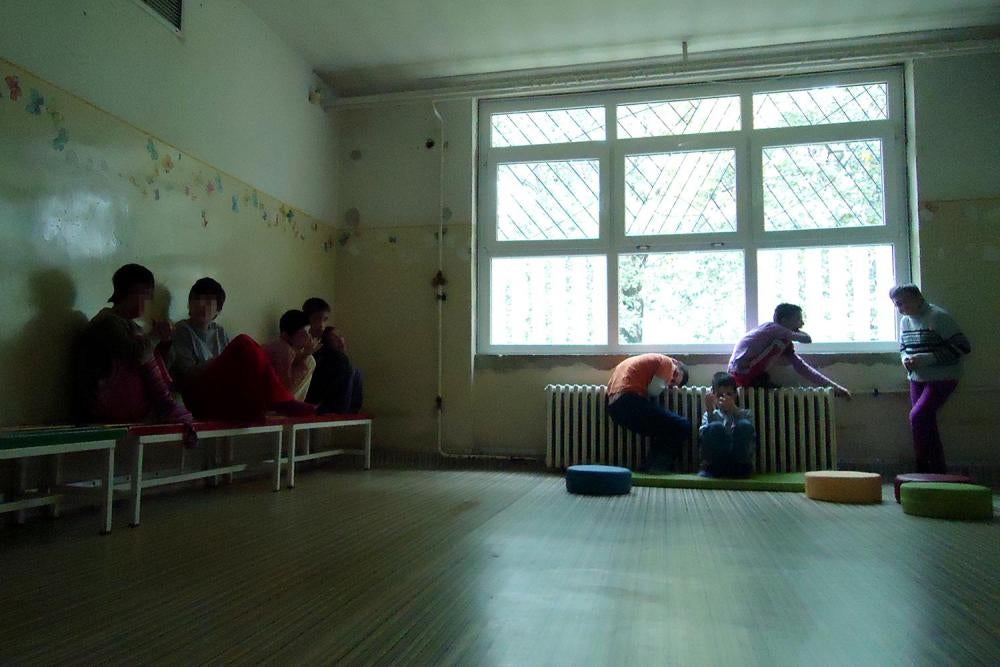 A living room in Veternik Institution where children and adults with disabilities spend most of their days. There are no toys, education materials, or carpets on the floor. The only available source of stimulation is a TV attached to the wall.
© 2015 Emina Ćerimović for Human Rights Watch
A living room in Veternik Institution where children and adults with disabilities spend most of their days. There are no toys, education materials, or carpets on the floor. The only available source of stimulation is a TV attached to the wall.
© 2015 Emina Ćerimović for Human Rights Watch
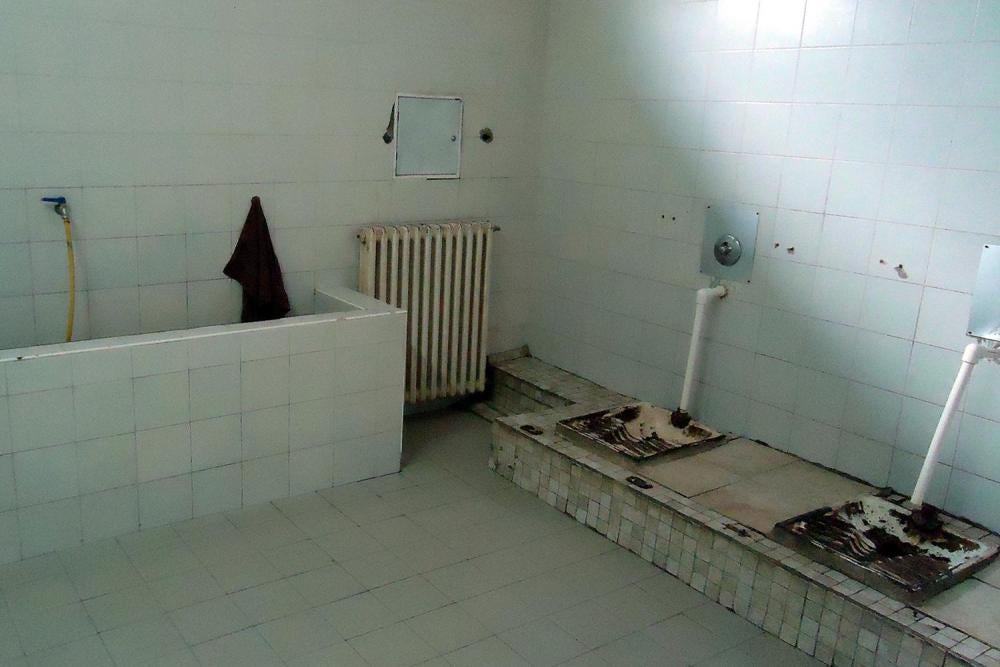 Bathroom in the Stamnica Home for children and adults with disabilities. There are no doors or means of privacy separating the toilets in the bathroom. There are no showers and children use the water hose when taking a bath.
© 2015 Emina Ćerimović for Human Rights Watch
Bathroom in the Stamnica Home for children and adults with disabilities. There are no doors or means of privacy separating the toilets in the bathroom. There are no showers and children use the water hose when taking a bath.
© 2015 Emina Ćerimović for Human Rights Watch
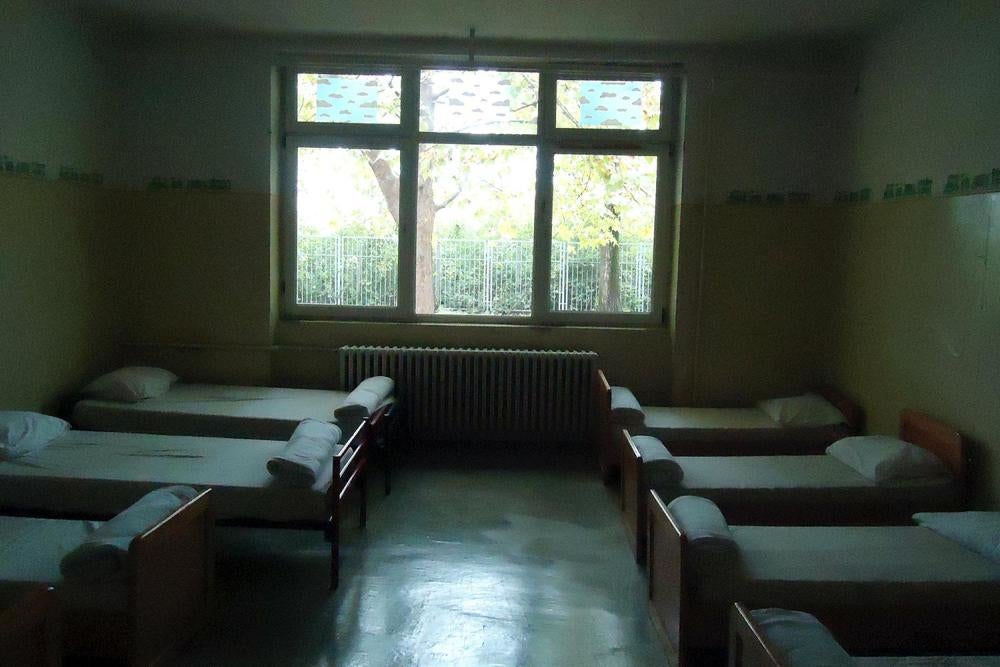 A room in the Veternik Institution for children and adults with disabilities where 540 persons, including children with disabilities live. Up to eight people live in one room.
© 2015 Emina Ćerimović for Human Rights Watch
A room in the Veternik Institution for children and adults with disabilities where 540 persons, including children with disabilities live. Up to eight people live in one room.
© 2015 Emina Ćerimović for Human Rights Watch
![Marina [pseudonym], a 4-year-old girl with developmental disabilities who spent ten months of her life in an institution, with her foster sister. © 2015 Jasenko Rasol for Human Rights Watch](/sites/default/files/styles/image_gallery/public/multimedia_images_2016/2016drd_serbia_disabilities_final.00_02_44_10.still001_0.png?itok=A5nR4tyS) Marina [pseudonym], a 4-year-old girl with developmental disabilities who spent ten months of her life in an institution, with her foster sister.
© 2015 Jasenko Rasol for Human Rights Watch
Marina [pseudonym], a 4-year-old girl with developmental disabilities who spent ten months of her life in an institution, with her foster sister.
© 2015 Jasenko Rasol for Human Rights Watch
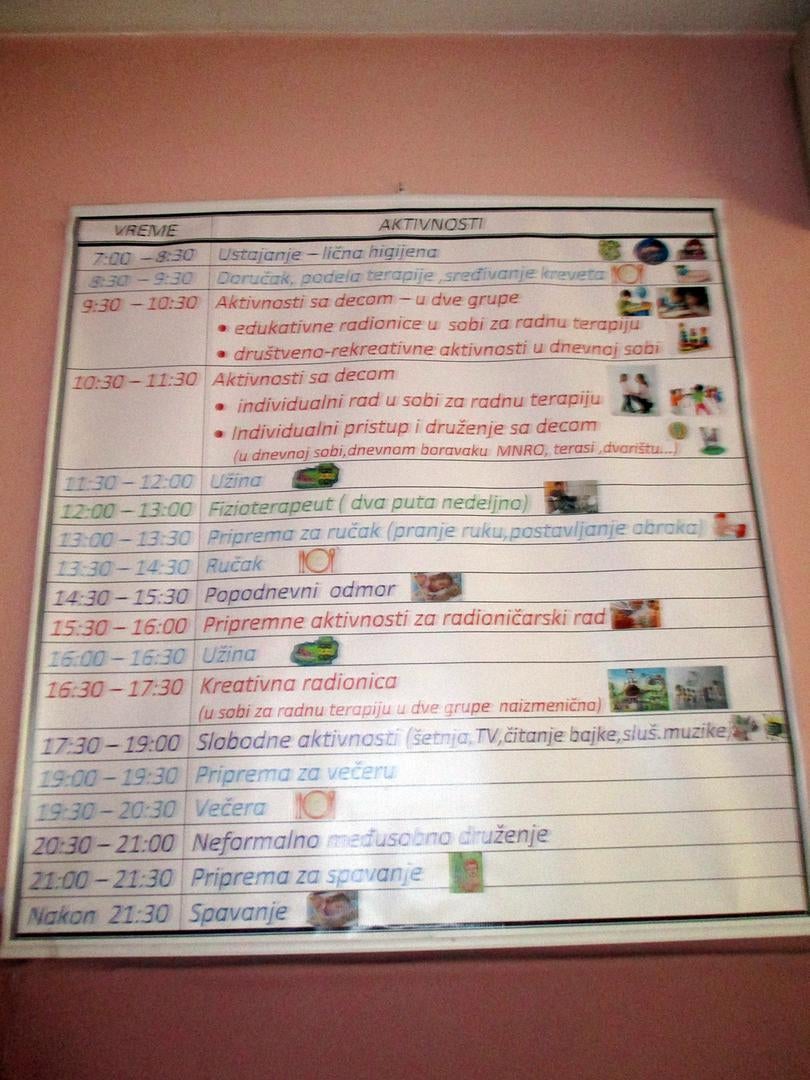 A schedule of children with disabilities in one of the institutions Human Rights Watch visited. The schedule is the same each day, with 30-minute blocks of time allotted for meals, occupational therapy, hygiene, sleep, and leisure activities.
© 2015 Emina Ćerimović for Human Rights Watch
A schedule of children with disabilities in one of the institutions Human Rights Watch visited. The schedule is the same each day, with 30-minute blocks of time allotted for meals, occupational therapy, hygiene, sleep, and leisure activities.
© 2015 Emina Ćerimović for Human Rights Watch
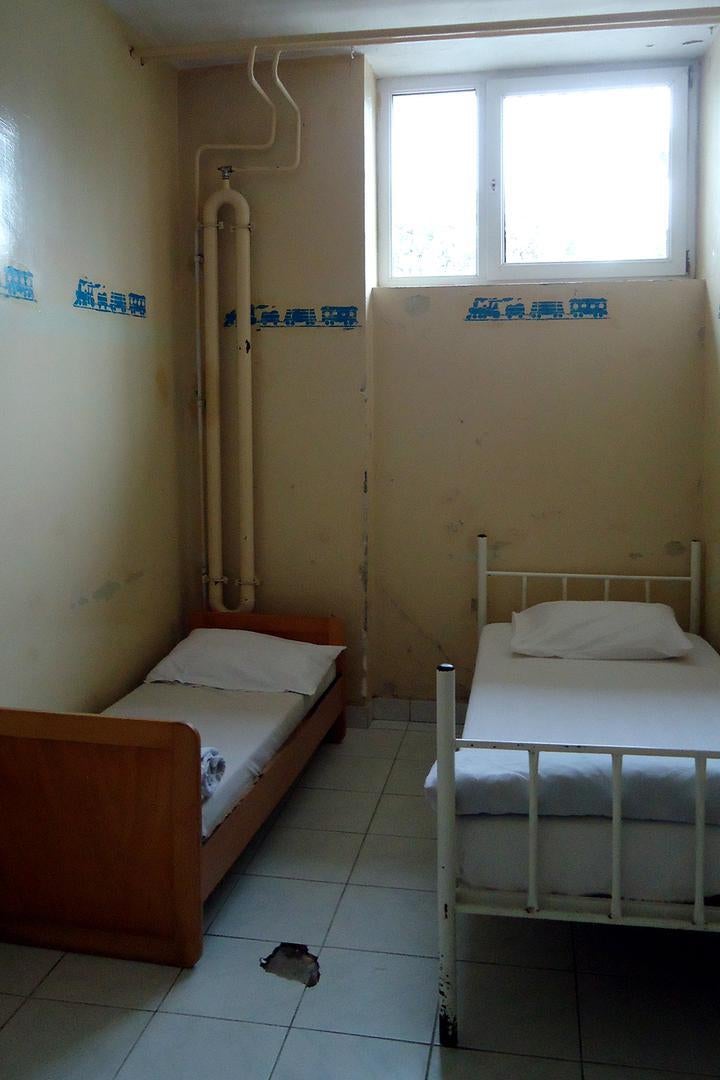 One of the isolation rooms in the Veternik institution. Isolation rooms are used to separate children and adults from other residents in cases of contagious diseases or until they “adapt” to the institution.
© 2015 Emina Ćerimović for Human Rights Watch
One of the isolation rooms in the Veternik institution. Isolation rooms are used to separate children and adults from other residents in cases of contagious diseases or until they “adapt” to the institution.
© 2015 Emina Ćerimović for Human Rights Watch
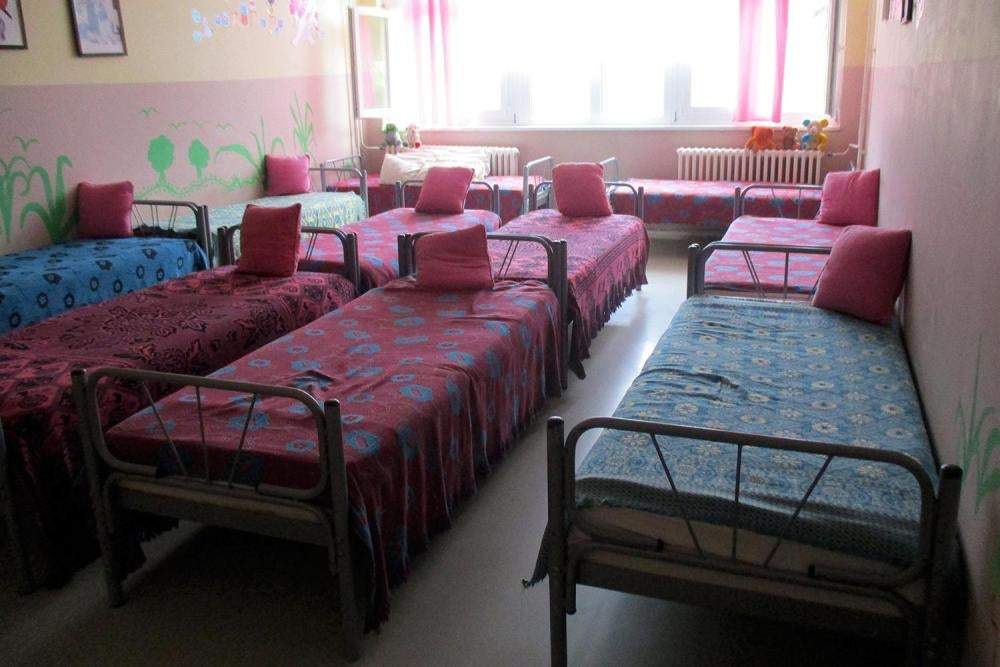 A room in the Sremčica Home for children and adults with disabilities where 292 persons, including 49 children, with disabilities live. Up to 10 people live in one room.
© 2015 Emina Ćerimović for Human Rights Watch
A room in the Sremčica Home for children and adults with disabilities where 292 persons, including 49 children, with disabilities live. Up to 10 people live in one room.
© 2015 Emina Ćerimović for Human Rights Watch
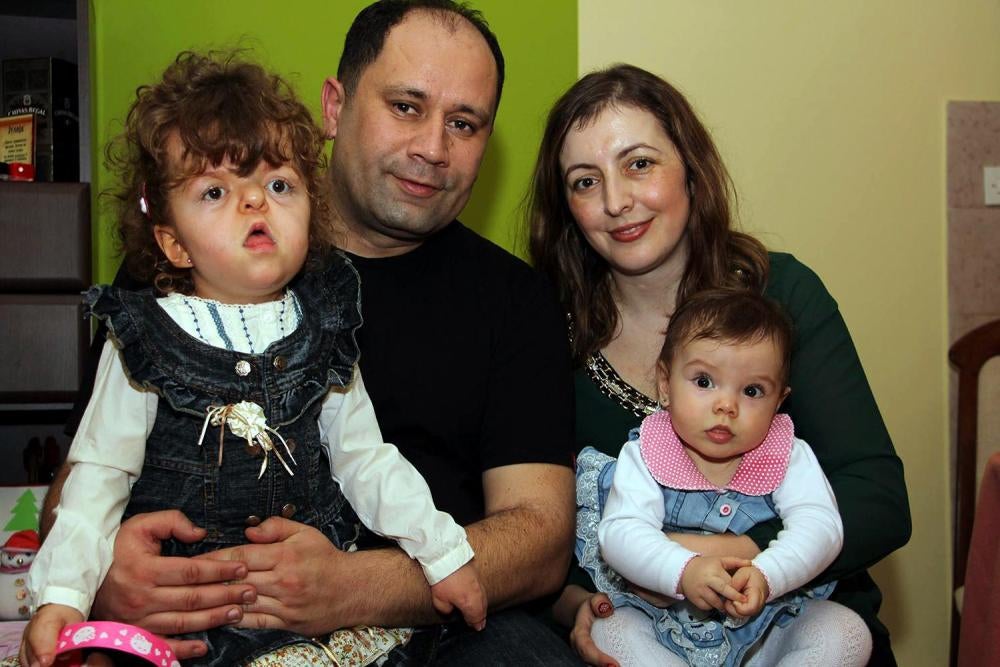 Julija Čuković, who spent ten months of her life in an institution, at home in Kragujevac with her parents, where she enjoys to play with her younger sister, also in the photo.
© 2016 Zoran Stamenković
Julija Čuković, who spent ten months of her life in an institution, at home in Kragujevac with her parents, where she enjoys to play with her younger sister, also in the photo.
© 2016 Zoran Stamenković